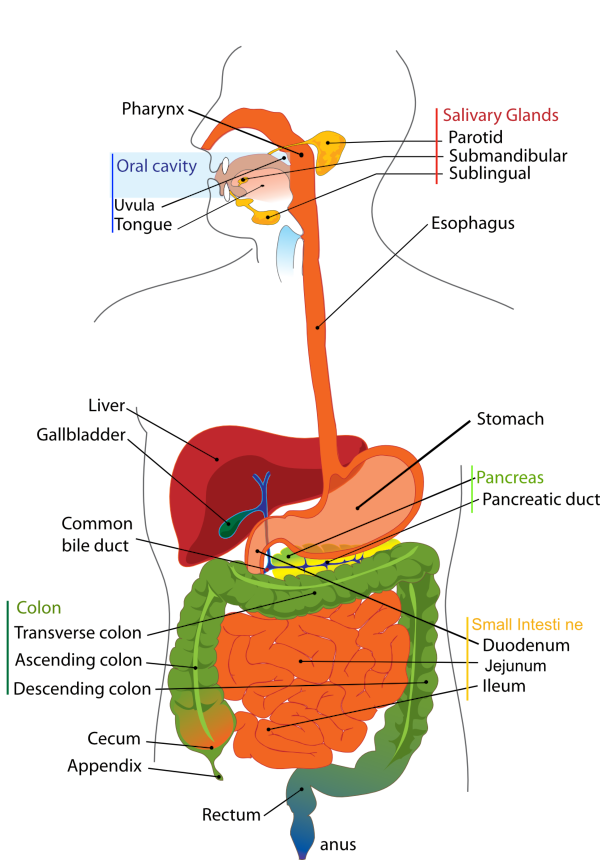 The digestive process is quite long and complex in our body. Food entering our body should bring not only pleasure, but also useful micro-nutrients for the structure and recovery of the body.
The digestive process is quite long and complex in our body. Food entering our body should bring not only pleasure, but also useful micro-nutrients for the structure and recovery of the body.
The digestive process begins as soon as the food enters the mouth. Saliva helps not only to move food further down the esophagus, but also to the absorption of micro-elements. You need to pay enough attention to how you are eating. How much smaller pieces the food is chewed into, the easier it will be digested by your intestines. Poorly chewed food can cause abdominal pain as well as bloating and other unpleasant symptoms.
Eat regularly
Do not allow large gaps between meals. It is optimal to eat 3 to 5 times a day. Where 3 are basic meals and 1 or 2 are snacks.
Avoid fast-food or if you are absolutely forced then try to eat it less often. As a general rule it is best to avoid fast food because of the large amounts of saturated fats, oils, salts. These ingredients are generally not needed in the amounts that fast food provides and are not considered useful to your body. By eating fast food the load is amplified on the pancreas and can create digestive illnesses.
Don’t over eat
Too much food is inevitably seen as a digestive problem. The body just can’t cope with the big volume.
The food should be as diverse as possible. The diversity helps the stomach digest and at the same time it gives a varied array of nutrients. If possible avoid mixing acidic foods with base foods as some people may have issues when they mix in the stomach.
Building and recovery
If you are a healthy person without any problems then in your diet can be absolutely any foods. It all comes down to portion sizes and diversity of the food. In short pizza every day is bad – and no it does not help to choose a different pizza from the menu.

